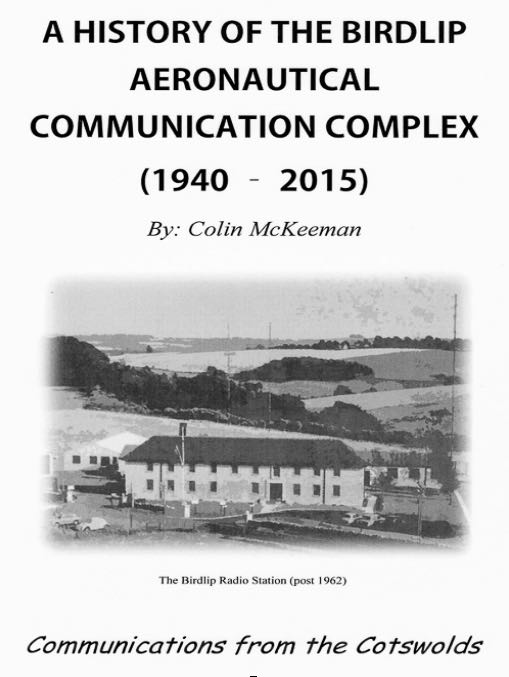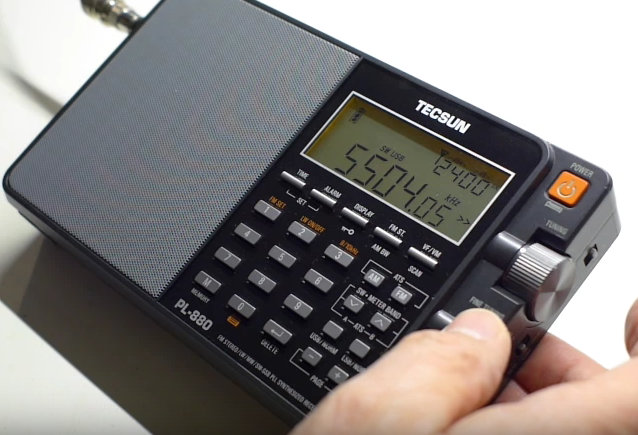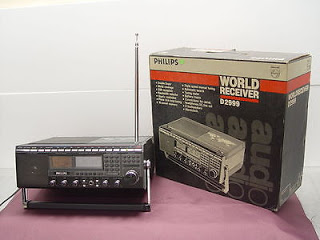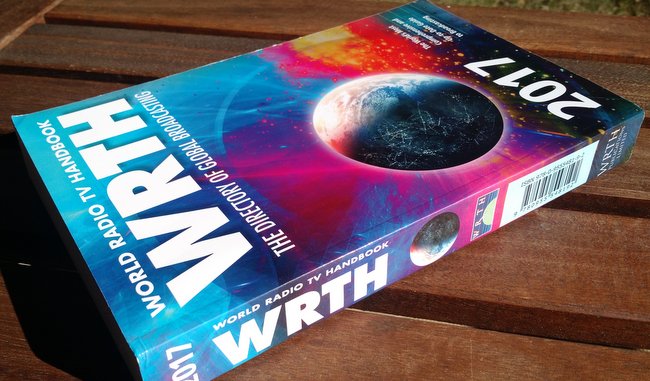(Source: NPR)
John Lansing is the CEO of the governing body in charge of the government-funded Voice of America news service.
He talks with Steve Inskeep about the agency’s operations under the new administration.

(Source: NPR)
John Lansing is the CEO of the governing body in charge of the government-funded Voice of America news service.
He talks with Steve Inskeep about the agency’s operations under the new administration.
 Many thanks to SWLing Post reader and author, Colin McKeeman, who shares the following announcement:
Many thanks to SWLing Post reader and author, Colin McKeeman, who shares the following announcement:
As a mature aviation historian and keen HF monitor since the mid-1960’s, as you will note from my blog this has prompted me to produce this detailed record of the [Birdlip Aeronautical HF Communications Complex, U.K.] stations activities.
[…]The activities of this station are currently handled by ‘Shanwick’ (Shannon and Prestwick) for air traffic on the North Atlantic.
I attach a summary of its content which may help to clarify the scope and nature of this publication.
Click here to download the full press release (PDF).
Fascinating, Colin! I think you’ll find a number of our community members love reading about the history of HF stations. Thank you for sharing your press release!
 Many thanks to SWLing Post contributor, Troy Riedel, who has recently added the hidden bandwidth adjustment feature to Cap Tux’s excellent PL-880 reference sheet.
Many thanks to SWLing Post contributor, Troy Riedel, who has recently added the hidden bandwidth adjustment feature to Cap Tux’s excellent PL-880 reference sheet.
Here are links to download the updated sheet:
I will also add this to the Complete list of Tecsun PL-880 hidden features page: a place where you can comment if you note any previously unpublished PL-880 hidden features.
Thanks again, Troy!
Many thanks to SWLing Post contributor, John Harper (AE5X), who is kindly allowing me to re-post the following article originally published on his excellent blog:
by John (AE5X)
From London Shortwave: “It’s official: Radio Australia are no longer on shortwave…”
Nine of my 10 years in the Navy were spent in the Submarine Service – the other year was spent aboard a research ship operating between Perth, Australia and Singapore. Our mission was to make detailed contour charts of the sea floor in that area using precision fathometers and new-at-the-time GPS.
The detailed charts allow US submarines to get navigational fixes by correlating their soundings with the data we had collected without having to come to periscope depth for a satellite fix, thus the need for a small contingent of submariners on a surface ship. Gathering this data required the ship to stay at sea 28 days at a time, going back and forth in straight lines across the eastern Indian Ocean. At the end of those 28 days we would pull in to either Fremantle or Singapore for a week, then out again.
We enjoyed the sunlight, fresh air and the presence of civilian women onboard (oh, the stories I could tell if this weren’t a family-friendly blog!) but what we missed – and missed greatly – was news from the world. Big things were happening at a fast pace in those days as the Iron Curtain began to crumble and we knew nothing of it for long, event-filled month-long chunks.
There is a huge psychological disconnect that comes with being isolated from the world for a month at a time. We starved for news and any kind of connection to the outside world so, during a port call to Singapore, I bought a Philips D2999 shortwave receiver. It was small enough for shipboard life, ran on AC or batteries and even had a BFO for occasionally listening to hams.
 After having it for a few days and mentioning to the other crewmembers various things that were happening around the world, their interest grew and I eventually moved the radio from my stateroom to a common breakroom so that anyone could listen whenever they wanted. For a while we even had a printout of news events – a one-page daily newspaper – that we posted in various locations throughout the ship. Many of us were glued to the radio during the week of events in December 1989 that culminated in the Christmas Day execution of Romanian President Nicolae Ceau?escu.
After having it for a few days and mentioning to the other crewmembers various things that were happening around the world, their interest grew and I eventually moved the radio from my stateroom to a common breakroom so that anyone could listen whenever they wanted. For a while we even had a printout of news events – a one-page daily newspaper – that we posted in various locations throughout the ship. Many of us were glued to the radio during the week of events in December 1989 that culminated in the Christmas Day execution of Romanian President Nicolae Ceau?escu.
Some of that news came from the VOA, some from the BBC and even from Radio Moscow. All had good signals into the Indian Ocean area at times. But regardless of time of day or ionospheric conditions, Radio Australia was always there, like a beacon – reliable, dependable and with great fidelity due to no selective fading. It was our primarily source of news.
Frequencies of many stations and the best times to hear them were posted near the radio but everyone knew our two main frequencies for Radio Australia without having to look it up. We listened to Radio Australia so much that the announcers eventually lost their accents.
The beauty and utility of shortwave was introduced to people who otherwise would have had no interest in it. Thanks mainly to Radio Australia, we not only knew what was going on in the world, more importantly, we felt more a part of it and less isolated than we had been before.
The end of Radio Australia and so many other shortwave stations marks the end of an exciting era. What an amazing thing it was, in a pre-internet world, to be able to get information on the high seas, thousands of miles from land.
Farewell, Radio Australia and thanks for the trip down Memory Lane.
And thank you, John, for sharing your memories with us!
Post Readers: I encourage you to bookmark John’s brilliant ham radio blog!
Do you have any memorable Radio Australia moments? Please comment!
 (Source: Shepparton News via Richard Cuff)
(Source: Shepparton News via Richard Cuff)
The mothballed Shepparton shortwave broadcast station could be coming back online.
South Australian senator Nick Xenophon will introduce legislation to parliament this week to force the ABC to bring back domestic and international shortwave broadcasts.
The broadcasts were shut down last week, after decades of the shortwave signals being listened to by people from across the pacific region and around the world.
A spokesperson for Mr Xenophon said a bill would be introduced sometime this week to bring back the domestic shortwave broadcasts in the Northern Territory, as well as the international Radio Australia broadcasts, which were beamed to the world from Shepparton.[…]
 Many thanks to SWLing Post contributor, Ivan Cholakov (NO2CW), who writes:
Many thanks to SWLing Post contributor, Ivan Cholakov (NO2CW), who writes:
A while back I shared a short story about FM reception from commercial jetliners. I do that regularly on my flights but I also gave “Airborne TV DX” a try.
My equipment is as follows:
- Windows laptop
- Hauppauge USB dongle receiver WinTV-HVR-955Q
- 3-inch stick antenna
The receiver comes with its own WinTV software for tuning, scanning, watching and recording TV programs. It is one of the few USB dongle size receivers for North America’s ATSC digital TV standard. A have posted a video of my reception recordings from a roundtrip flight Miami to St Louis.
The video is located here:
Click here to view on YouTube.
My notes regarding this activity:
Reception from commercial airplanes is possible as far as 400 miles with the simple unobtrusive “stick” antenna.
Channel scanning is pretty slow and it is possible that by the time you detect a signal, save it, and tune to it you are 50 miles away from the point where you detected it.
Many times signals are detected but no video can be shown due to weak signal. Users in Europe may have a different experience as the availability of DVB-T USB dongles and software is much wider.
TV DX can make a coast to coast flight a much more interesting experience!
No doubt, Ivan! Thanks so much for sharing.
Ivan is quiet adept at logging and recording FM and TV DX while in the air and at sea. Click here to view his previous posts.
 (Source: Sean Gilbert via WRTH on Facebook)
(Source: Sean Gilbert via WRTH on Facebook)
The B16 International broadcasting schedules update file is now available for free download from www.wrth.com – click on the ‘latest PDF updates’ link and follow the instructions. The file details the latest frequency and station changes from both international and clandestine/target broadcasters. We hope you find this file a useful accompaniment to the printed WRTH.